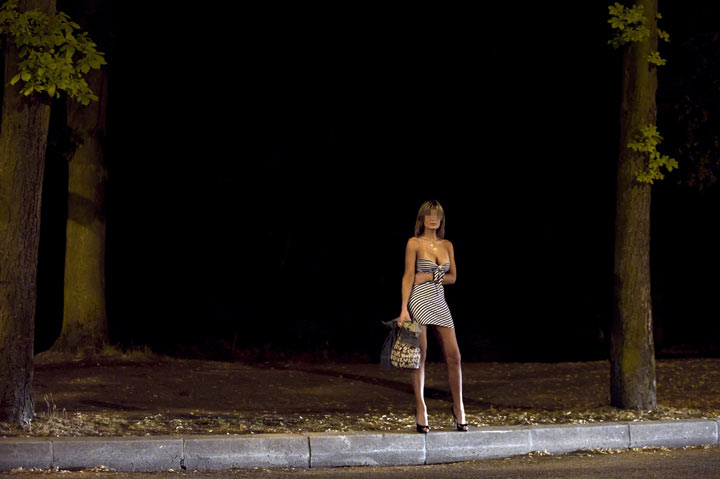Above: Lawmakers face a challenge of how to respond to the Supreme Court of Canada decision to strike down prostitution laws. Jen Tryon takes a look at some of the examples Canada might follow.

TORONTO – Canada’s top court has struck down three prostitution-related prohibitions, and given Parliament one year to come up with new legislation. So what does that mean for now and the future?
The three prostitution laws that got struck down: keeping a brothel, living on the avails of prostitution, and street soliciting.
Remember: prostitution itself is not illegal in Canada, though law professor and counsel for Women’s Coalition for the Abolition of Prostitution Janine Benedet believes our current laws criminalize prostitution in “almost every single form that you can imagine to do it” and that women in prostitution are “most likely to be charged” (as opposed to pimps or johns).
READ MORE: A chronology of Canadian prostitution laws
The one-year gap: Even though the provisions against the three above laws have just been deemed fundamentally unjust, they’ll persist for a year in order to give the legislature the opportunity to address this “complicated social problem,” suggests Osgoode Hall Law School professor Benjamin Berger.
So that means the above three offences will stay in the Criminal Code until Dec. 19, 2014.
Watch: Heritage Minister Shelly Glover told reporters the government will consider “all options” following a Supreme Court decision overturning part of the Criminal Code relating to prostitution
If Parliament does nothing: Brothels could exist in Canada by next Christmas.
Criminology professor John Lowman said if the current laws are left to fall, the responsibility for regulating prostitution would be displaced to municipalities and provinces.
“It would leave them with the problem of how to regulate, and also leave them bearing most of the cost,” he said, citing policing or zoning expenses as potential examples.
Berger believes it would be a bit surprising if Parliament didn’t introduce new criminal legislation, given the “healthy appetite the Harper government has shown” for dealing with social issues “using the bluntest instrument of law” i.e. criminal law.
Justice Minister Peter MacKay also issued a statement of “concern” that the current laws were found unconstitutional. He said the government wants to “ensure the criminal law continues to address the significant harms that flow from prostitution to communities, those engaged in prostitution, and vulnerable persons,” suggesting it’s unlikely the government will do nothing in response to the ruling.
What Parliament’s changes might be…
1. Criminalize the customers: Benedet believes this ruling gives Parliament the opportunity to follow the laws of Sweden and most recently France, and focus on the customers. Those countries criminalize purchasing and pimping, but don’t criminalize prostitutes themselves.
READ MORE: Prostitution laws around the world
“But the same can’t be said for the johns and the pimps – they’re the ones that create the demand that requires we produce the supply. They’re clearly choosing to be engaged in this – and they’re doing something that’s fundamentally exploitative,” she said.
But Lowman worries that the so-called “Nordic model” (that criminalizes the purchase but allows the sale of sexual services) would run into legal problems in Canada.
“I refer to it as a system of institutionalized entrapment,” he said. “In public opinion polls, only about 10 per cent of Canadian citizens support that model.”
2. Try to increase security but save some provisions: The ruling itself noted that an example of a change could be “permitting prostitutes to obtain the assistance of security personnel.” But Benedet worries that pimps would then “re-imagine themselves” as security guards, without addressing the underlying problems of women’s safety.
“Instead of saying the state has a role to play in ensuring that women are safe, and that they have a range of options for supporting themselves. We just say to women – well protect yourself. Hire a security guard, get together in groups, try to screen out the bad men and you’re on your own.”
3. Criminalize prostitutes themselves: The fact that the three provisions in question interact with each other in complicated ways means a simple amendment will be insufficient, suggested Berger. He believes if Parliament comes back with changes, it will be a “fairly comprehensive rethinking of how to deal with the conditions and social issues surrounding prostitution.”
4. Regulation outside the Criminal Code: Berger noted it’s not clear a government would have to come back with criminal legislation, as it may choose to regulate by other measures: public health or safety, for example. Parliament could also pass the responsibility to provinces or municipalities to make prostitution a zoning issue.
READ MORE: Brothel boss ready to pounce on Canada
Benedet has concerns that making prostitution “a question for regulating” would be a problematic move, suggesting demand would increase in that scenario.
“If demand increases, then the supply has to increase. And you’ll see more women and more girls in prostitution as a result,” she said.
When we’ll know: When asked what potential amendments the government is considering in the next 12 months, MacKay’s spokesperson replied the government will “move expeditiously with legislative amendments in order to address the significant harms that flow from prostitution to communities, those engaged in prostitution, and vulnerable persons.”
Questions on whether regulatory measures besides criminal legislation were being considered were met with: “Details on these amendments will be revealed in due course.”
“So if they wanted to make sure there was criminal regulation of prostitution, they would have to put the laws in force within the year,” said Berger. “Then…it’s not unreasonable to see whatever they come up with being challenged before the courts again.”
Parliament could also ask the Supreme Court for an extension if it has tabled new legislation but can’t meet the Dec. 19, 2014 deadline.




Comments